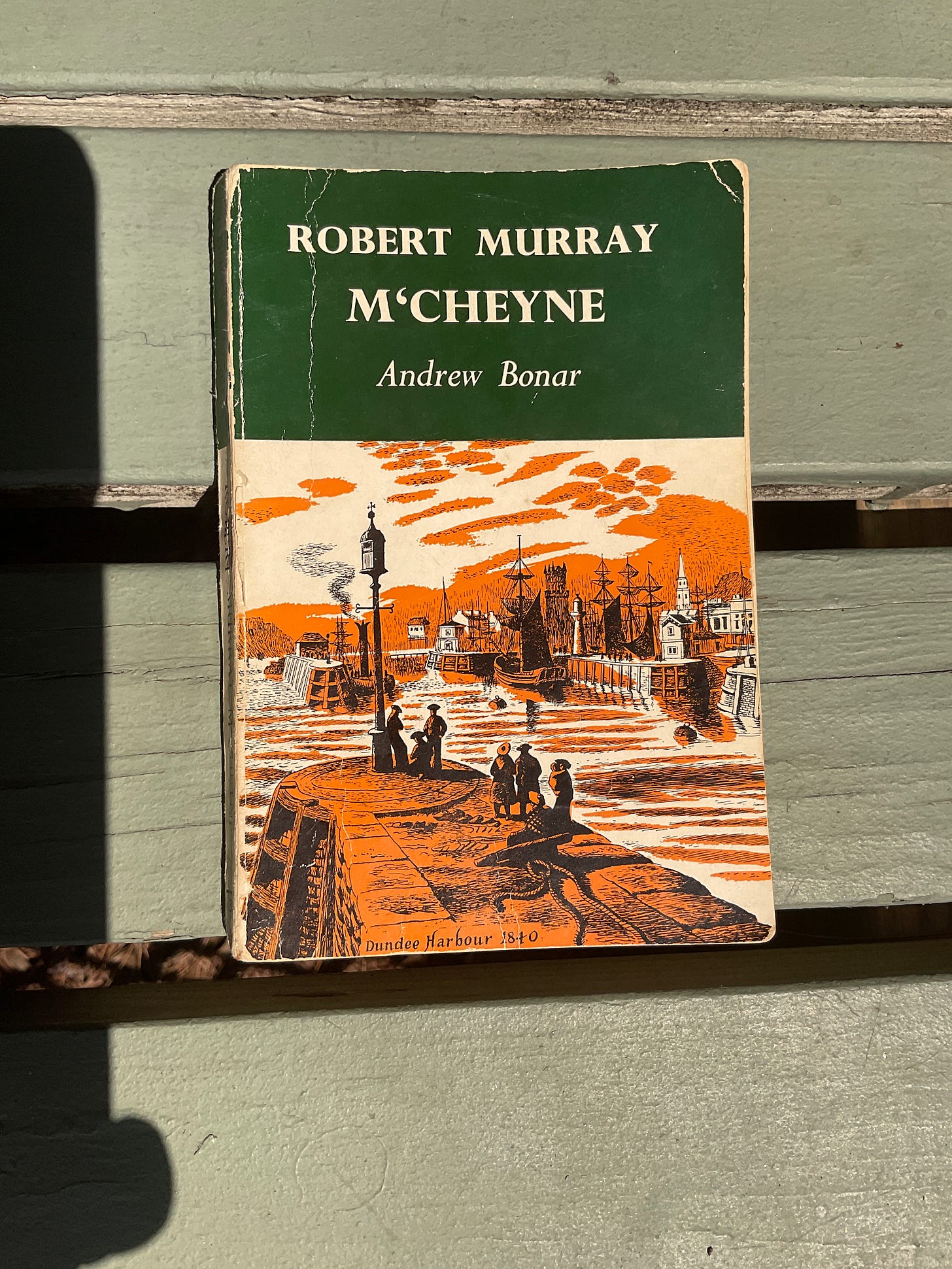Book Review: Robert Murray M’Cheyne by Andrew Bonar
How Did I Get This Book?
If I recall correctly, this came from “the Upper Room at Calvary” in Ottawa a couple of years ago. It’s been hanging around through 3 moves, from Ottawa in 2021, then from Tampa in 2022, then from St. Pete to Fort Walton Beach in 2023. That’s impressive, because it’s a paperback from 1962.
A few years ago, I read about half of the record of Bonar and M’Cheyne’s trip through Palestine in the early 1800’s. In addition, over the years, many other pastors will refer to this biography to make some point about holiness or how to be a pastor.
What Is It About?
It’s the story of M’Cheyne’s ministry which was only a few years. He died at 29 years old. It briefly covers his childhood, the tragic death of his older brother while he was still a teenager, his experiences in seminary, early ministry, the trip to Israel and then his last couple of years back in Dundee, Scotland.
What’s of particular note through the whole book is M’Cheyne’s intense devotion to Christ personally, and his relentless pursuit of seeing people become fully devoted Christians. There are several diary entries and excerpts from letters he sent.
What did I think of it?
His devotion to Christ is striking. It’s inspiring. Deeply.
What else is inspiring is his devotion to evangelism. He made a point to visit as many people as he could in his assigned parish. He went to the worst places. He was troubled by how difficult many of the people’s lives were. He was living in the Industrial Revolution in a growing city. Some of the stories were heart-wrenching. He didn’t have hardly any success in the early years. Yet, he wanted everyone to have an opportunity to hear the gospel.
He was rewarded for his efforts when he returned to Dundee after his trip to Palestine. Revival had broken out while he was gone. His remaining years were far more thrilling than the former.
Mr. Bonar includes a letter that M’Cheyne wrote to a teenager that was leaving town for school. M’Cheyne hadn’t had the opportunity to visit him, so he wrote a very tender and gentle, big brother style letter, explaining the gospel, and laying out reasons why he should carefully consider it. It’s superb.
There’s also a story of how he wouldn’t baptize a dying infant because the parents and family were so careless about their faith. He reasoned that there would be no difference made to the child if it was baptized. He would only be soothing the conscience of the parents. They needed to repent and realize that their choices had resulted in these consequences. It was bold.
Lastly, what struck me was his health problems. He wasn’t married (that I could tell) and he was absorbed by his ministry activities. He had heart problems and was forced to take an extended break. He was bedridden at times. For a young man, this was difficult. The silver lining in it, was that the trip to Palestine became a great way to see his health restored. And that trip, along with the book about it, became part of what the Lord did through Anglophones in supporting the return of many Jewish people to Israel.
Conclusion:
It’s obvious why so many pastors refer to M’Cheyne. Charles Spurgeon may be why this biography was so popular to begin with. He said:
“Read M’Cheyne’s Memoir, read the whole of it; I cannot do you a better service, than by recommending you to read it… it is the story of the life of a man who walked with God.”
Have you read it?





